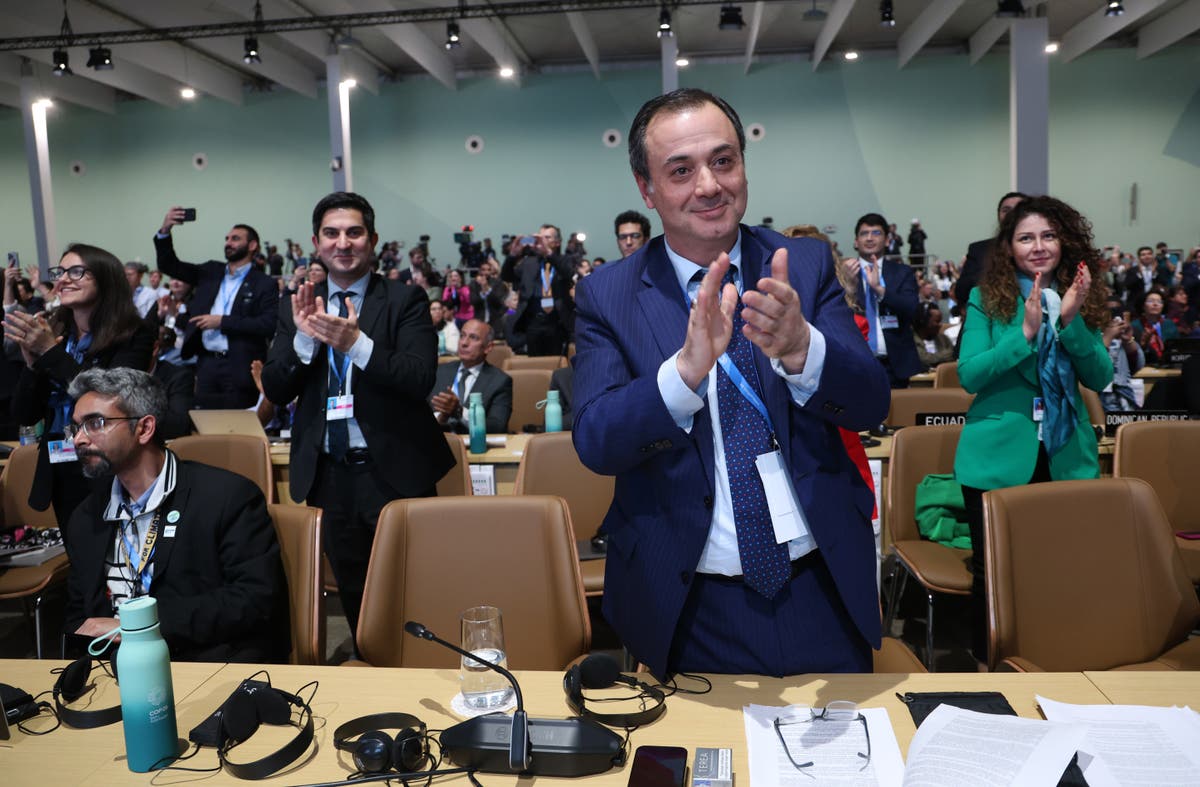Although the last-minute agreement on climate finance reached at the Cop29 summit in Baku was branded a “betrayal” of developing countries by campaigners, it was much better than no deal. It just about kept the vital multilateral show which began with the 2015 Paris Agreement on the road.
With the spectre of Donald Trump’s return to the White House hanging over the fraught negotiations, failure would have been a double disaster. He is committed to withdrawing from the Paris Accords, as he did in his first term, and in Chris Wright has nominated as energy secretary a fracking boss who has argued “there is no climate crisis”.
Cop29 had a surreal feel. The Azerbaijani hosts were criticised for their handling of the negotiations. The atmosphere was not helped when Ilham Aliyev, the country’s president, used his opening statement to describe its oil and gas as “a gift from God”. Some delegates viewed the summit as the last stand by the fossil fuel world, as Saudi Arabia and its allies were accused of trying to dilute the final text.
In the end, events followed a familiar pattern. The talks overran and saw a walkout by poorer nations before a deal was finally brokered by exhausted delegates in the early hours yesterday (Sunday). Developing countries will receive $300bn a year from rich nations by 2035, to help them shift to a low-carbon economy and cope with the effects of climate change.
It was less than they wanted, but the agreement called on all parties to mobilise “all public and private sources” to get closer to the poor nations’ demand for $1.3 trillion a year by 2035. The private sector will have to do much of the heavy lifting, as will international institutions such as the World Bank – though the US has a dominant role in it, so that could prove problematic.
The agreement in Baku, while welcome, does not alter the worrying perception that climate change is slipping down the agenda of many world leaders, as they prioritise other matters at home such as the cost of living. Yet, as the recent floods in Spain showed, the climate emergency is now very close to home for developed countries too.
The downward trend is ominous at a time when experts warn that 2024 will not only be the hottest year on record, but almost certainly the first in which the 1.5C warming limit in the Paris accords will be surpassed. That would not in itself mean a climate disaster, but would nonetheless be a highly symbolic moment.
With extreme heat, warmer oceans, rising sea levels and both more drought and more extreme rainfall, the danger is that dramatic tipping points are reached, such as the Amazon becoming a savannah, from which there would be no turning back. As Antonio Guterres, the UN secretary general, warned world leaders in Baku; the planet is experiencing a “masterclass in climate destruction”.
Thankfully, the UK is bucking the international trend. Unlike several of his fellow leaders, Sir Keir Starmer made the long trip to Baku, and pledged to cut emissions by 81 per cent compared with 1990 levels by 2035. Ed Miliband, the energy security and net zero secretary, stayed at the conference until the end, underlining the UK’s ability to show leadership on this critical issue.
The Starmer government will need to match its commitments on the global stage with action at home to ensure it hits its ambitious targets. Labour should not blink in the face of inevitable attacks by Conservatives and Reform UK, who will focus on the cost of net zero for the taxpayer and households. Sir Keir should remember that Rishi Sunak’s diluting of green measures after the false dawn of the Uxbridge by-election did not revive the Tories’ fortunes.
Mr Miliband said the Cop29 agreement “is not everything we or others wanted” but is a step forward, which sends a signal that clean energy transition is “unstoppable”. The Independent hopes he is right. Perhaps the momentum around the world will survive a second pull-out by Mr Trump, as it did the first time. Perhaps his friend Elon Musk will moderate the incoming president’s worst instincts on climate.
However, keeping the show on the road during Trump 2.0 will require other rich countries, including China and oil-rich Gulf states, to do more. There should be closer cooperation on climate by European countries, including the UK, just as this will be required on defence in an uncertain new era. Indeed, there can be no global security without climate security.

